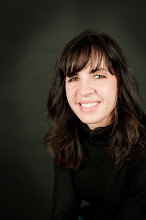Iraqis grateful to U.S. "Invaders"
Last time I was home on leave an 11-year-old girl bitterly accused me of invading a country for no reason. Those were her words. I was curious about how this girl formed her opinion. She’s 11. There’s always the possibility that she went online and researched the subject, asked teachers hard, probing questions and delved into the deep political issues surrounding the war in Iraq, but that seems unlikely.
Later it all became clear when the girl’s mother told me how she had talked to an (a, one) Iraqi citizen, now in America, who had said he would never go back to Iraq after we “bombed the heck” out of it.
That’s interesting, I thought. This woman, an old friend of mine, obviously thought she had presented a piercing and inescapable point that would make me squirm.
Normally I shy away from political conversations, feeling that I am not nearly well enough informed to debate most issues. (In fact, most people with strong opinions are equally uninformed, I’ve found). The same holds true for the war. I didn’t fight in it because I thought it was right, but because that’s my job. People don’t get to enlist in the Army on the condition that they will only have to fight in wars they agree with.
But having had the unique opportunity to actually go to war, and as an Army journalist no less, I felt I had at least a slight advantage when it came to having interviewed Iraqis.
I interviewed hundreds of Iraqis from Nasiriyah and Karbala to Baghdad and Fallujah in the time I spent in Iraq. Some of them were admittedly bitter against the “invading Americans.” But most were thankful to the point of tears.
Keeping in mind that Iraq had two government controlled television stations and few newspapers before the war, that internet and cell phones were outlawed and international newspapers had to be smuggled in, I was actually surprised at the number of Iraqis who were not bitter. Until our tanks rolled across the border, the average family had no idea what was happening outside Iraq. Yet they still greeted us with cheers of joy.
They’d been waiting for us for 12 years.
Janan Dakak, an Iraqi-American citizen, said the predominant feeling among Iraqis is, “what took you so long?”
But turn on your TV any day of the week, and all you see is the “quagmire” in Iraq, and how the reconstruction is “failing.” You’ll see burning bodies in humvees, car bombs and attacks on police stations. You’ll hear about “insurgents,” and “Saddam loyalists.” If it bleeds, it leads in the press.
What you won’t see is the majority of what’s actually happening there. You won’t see the reforms in all the government ministries at every level. You won’t see people getting sent to countries all over the world to expand their educations. You won’t see the women who are finally free to leave the country without a male family member. You won’t see the young men lined up outside the police station to sign up for service before the dust of the most recent car bomb has settled.
I didn’t see all of these things myself, since I left Iraq more than a year ago. But Maysaa Mahmood, who came to the United States from Baghdad less than three months ago, saw them. Traveling outside the country for the first time to get her masters in pharmaceutical economics, Mahmood spoke recently at the post where I am currently stationed, along with Dakak. In two and a half months, she has already become disheartened with the American media, where she has yet to see an accurate picture of what is happening in her country.
I did see the reconstruction of schools and orphanages, the delivery of medical supplies, ceiling fans and water pumps, the rebuilding of power plants and Soldiers providing medical care for children.
I also saw the media from the inside. I worked as a liaison between them and the military. I set up their patrols. I saw the ratio of stories they covered versus stories that actually aired. I seriously considered finding a new career when I rejoin the civilian world, so I don’t have to be part of that.
I didn’t see any weapons of mass destruction. Neither, apparently, did anyone else … at least not from this side of the world.
“We all know for a fact that Saddam Hussein had weapons of mass destruction because he used them to kill our people,” Mahmood said. “Every Iraqi knows that.”
“The link to terrorism was there,” Dakak said. “It has been there for years. We know Saddam was paying $25,000 to (the family of) anyone who blew himself up in Israel. If that’s not a link to terrorism I don’t know what is.”
I couldn’t agree more, Janan.


0 Comments:
Post a Comment
<< Home